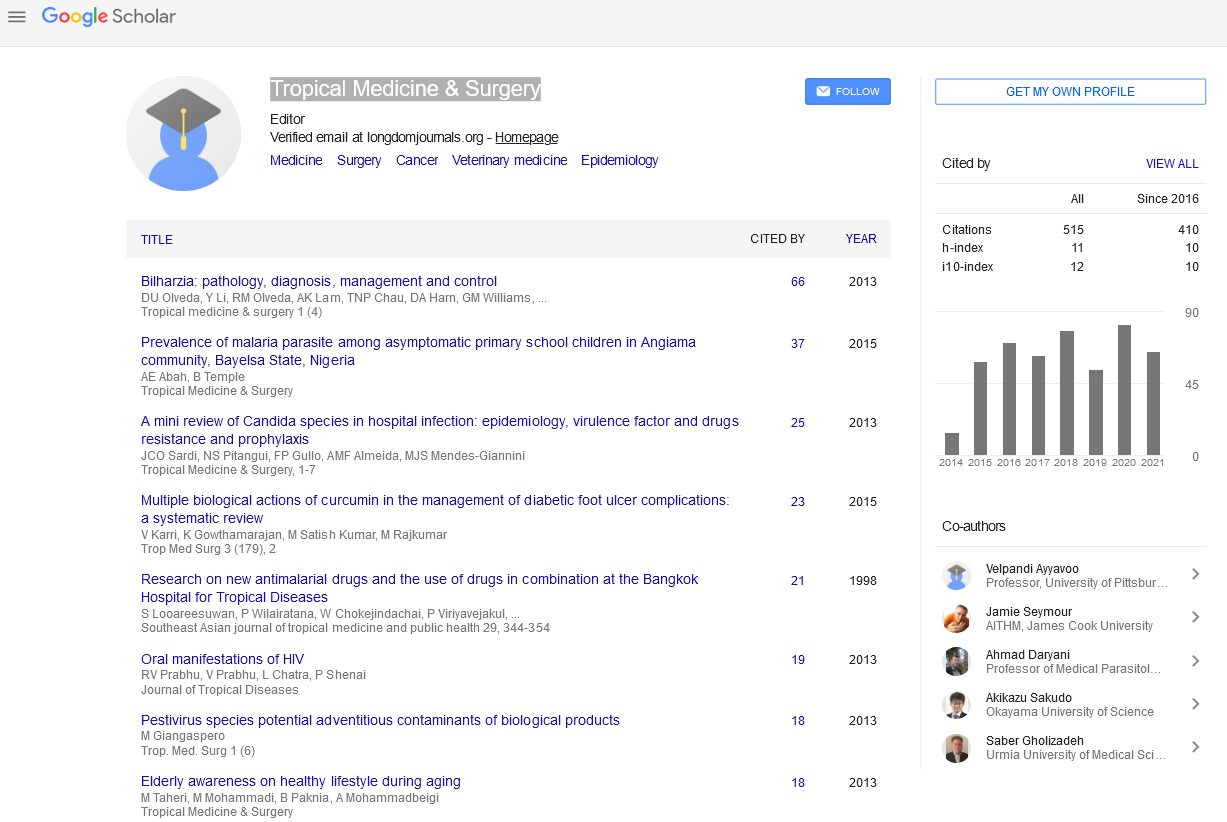PMC/PubMed Indexed Articles
Indexed In
- Open J Gate
- Academic Keys
- RefSeek
- Hamdard University
- EBSCO A-Z
- OCLC- WorldCat
- Publons
- Euro Pub
- Google Scholar
Useful Links
Share This Page
Journal Flyer

Open Access Journals
- Agri and Aquaculture
- Biochemistry
- Bioinformatics & Systems Biology
- Business & Management
- Chemistry
- Clinical Sciences
- Engineering
- Food & Nutrition
- General Science
- Genetics & Molecular Biology
- Immunology & Microbiology
- Medical Sciences
- Neuroscience & Psychology
- Nursing & Health Care
- Pharmaceutical Sciences
Abstract
Treatment Outcomes with Nitazoxanide in Immunocompetent Adults Naive Patients with Cryptosporidiosis; Do We Need Combination Therapy with Paromomycin or Azithromycin?
Introduction: Human cryptosporidiosis is caused by infection with Cryptosporidium. Nitazoxanide has shown activity against cryptosporidium. The objective of this study is to see treatment outcomes with 7 days of nitazoxanide in immunocompetent adult patients diagnosed with cryptosporidiosis and to consider combination therapy which includes nitazoxanide with paromomycin or azithromycin?
Study Design: This cross sectional study was conducted at Sindh Institute of Urology and Transplantation, Karachi Pakistan. Patients were not enrolled with prior diagnosis of cryptosporidiosis and/or had taken Nitazoxanide, Paromomycin or Azithromycin in last 4 weeks prior their diagnosis. Also patients were excluded if they were diagnosed as case of HIV/AIDS, history of solid organ transplantation, any malignancy or were taking steroids and immunosuppressant drugs.
Results: A total of 58 patients who had cryptosporidiosis were included in this study. 31 (53.4%) were males and 27 (46.6%) females. The mean age was 33.4 years with standard deviation ± 9.2. No statistical significance was seen in clinical presentation of cryptosporidiosis in both male and female genders. All 58 (100%) reported resolution of diarrhea after 7 days of nitazoxanide treatment. However, at 6 weeks follow up, 40 (70.1%) patients had recurrence of diarrhea whereas only 17 (29.9%) had no further episode of diarrhea.
Conclusion: Nitazoxanide is a new nitrothiazole compound with broadspectrum activity against numerous intestinal protozoa and helminths and have very good bio-safety profile. All 58 patients after 7 days of treatment with nitazoxanide showed good clinical response after short term. But in long term patients reported a high recurrence in 6 weeks period time. There is need of combination therapy which includes nitazoxanide with paromomycin or azithromycin in high recurrence/relapse patients.

